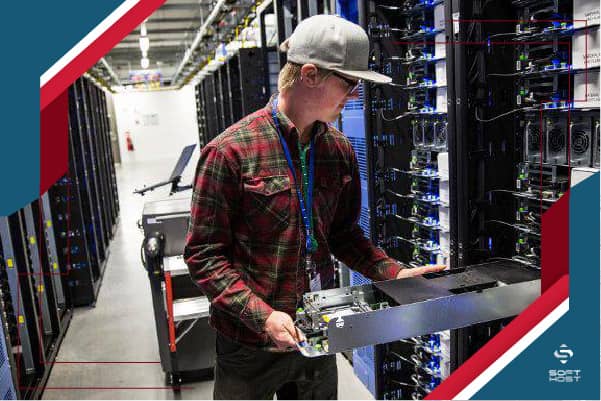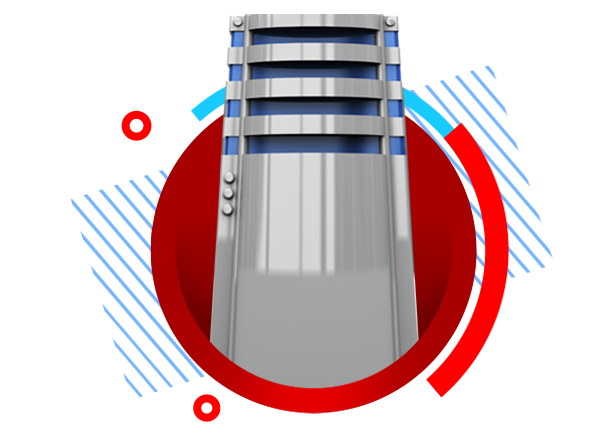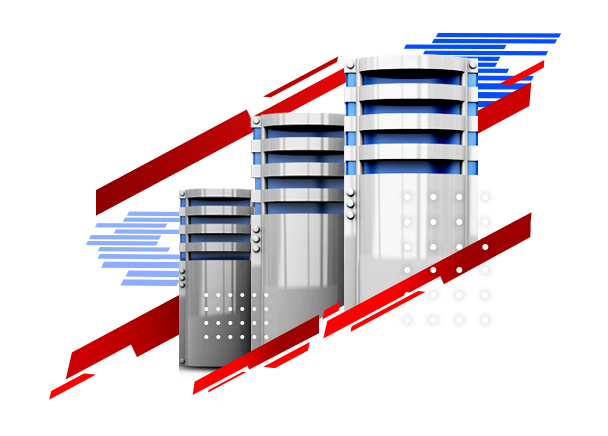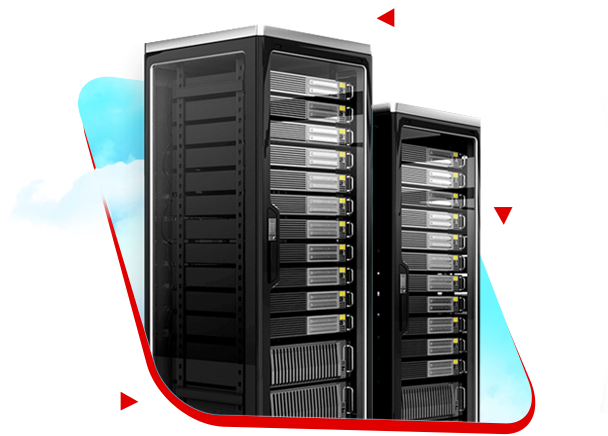
All the people who have a website, one of their concerns is the speed of content loading for internet users. Despite the many problems of the Internet, the website that has the fastest loading speed will win the challenge of attracting the audience. CDN service is created to help internet users and website owners. Read this article to the end to know what CDN is and how it can improve your website’s performance.
What is a content distribution network or CDN?
Table of Contents
Content Delivery Network (CDN) helps internet users to connect to the nearest server and receive your website content by distributing content on multiple cloud servers. This problem increases the speed of user access to the content. In this case, the CDN service refers the traffic load from the main server to the scattered servers in different places. But how does this method respond to the needs of users? How does CDN work and what is its mechanism?
How does the CDN system work?
By creating local servers in different parts of the world, the content distribution network stores a copy of your website content on the cloud space of its server. In this way, any user from anywhere in the world, when he enters the address of your website in his browser, does not need to connect directly to the main server. Rather, it is referred to the nearest local server by the CDN system and receives the stored content of your website from it. These local servers are called Point of Presence or PoP Site.
Each CDN has different presence points depending on its facilities. It is obvious that the more these presence points are, the more users from all over the world will be able to quickly use the facilities of your website. Most of your website information such as videos and images are stored on these presence points and only some variable information such as HTML codes are directly received from the main server. This will increase the speed of access and the smoothness of working with your site from anywhere in the world.
What are the benefits of CDN?
In this section, we review the reasons why companies large and small use CDNs.
1) Increasing security
When you use a CDN, the entire load of your site is no longer on the Origin Server (main server) and most of the traffic is provided by the CDN Edge servers. This, in addition to not being able to identify the original IP, reduces DDos attacks on the original server.
Apart from this, most CDNs have the ability to install TSL (a type of SSL certificate); As you know, by installing a TLS certificate, your site traffic is encrypted.
2) Affordable cost
The provision of infrastructure in CDN is the responsibility of its provider; So you don’t pay for this and (as well as for infrastructure maintenance).
The cost of the bandwidth used on the origin server also decreases; Because almost 80% of the traffic is on Edge CDN servers.
3) reducing ping and latency
When the content of your site is delivered to users from a closer geographical distance, server ping and network latency will also decrease. Pay attention that reducing ping and improving site speed has both an impact on a better user experience and is considered one of the SEO factors.
4) Low rate of network congestion
Of course, the less congestion on the network, the better its performance will be. Network congestion often occurs when a large number of users want to access a website at the same time. For example, when running an advertising campaign or presenting a popular product.
Using a CDN causes the content to be duplicated on different servers, and this results in less network congestion and less pressure on a server. As a result, we will see better performance and better user experience from the site.
5) Better uptime and increased user trust
We already said that CDN is an interconnected network of servers. Now what if a server goes down?
Very quickly, other servers replace it and answer users’ requests. In this way, the uptime of your site will increase and the audience will not lose their trust in you.
An important point: on the contrary, this also damages your brand. For example, if you get your CDN from a company that isn’t reputable or doesn’t have a good track record, showing your site’s deadlock over and over again will frustrate your audience and create a bad image for your brand.

6) Increasing the conversion rate
Various researches have proven that increasing or decreasing the speed of a site, game or any digital content has a direct impact on the conversion rate.
What is the conversion rate? When users enter your site and perform the action (goal) you want (for example, make a purchase or register on the site), we say that a conversion has occurred. The percentage of these conversions is called the conversion rate.
Therefore, with this account, a few milliseconds of delay in loading a large site like Amaron can cause several thousands of dollars in financial damage.
What is the best CDN (Content Delivery Network)?
Organizations and websites in general need a CDN for their success in order to perform better. But considering that these needs are constantly changing, the question arises, which CDN can help better?
To answer the question correctly, it is better to know 6 important factors.
1) The needs of your organization
Needs assessment is one of the steps that you should do before doing anything. Before we get to the analysis of different CDN providers, we need to understand the needs of our organization. The answers to these questions can help you get to know your business better.
What kind of website do you have? Do you have an online store? Where are your users located? What type of content (text, video, etc.) do you publish the most? What is your budget?
Of course, these questions alone cannot help, and you should certainly spend more time than these. But it gives you a general idea. Different CDNs offer different services. For this reason, it is better to know the needs of your business first.
2) Geography of the user
In CDN, geography plays a prominent role in content delivery. You need to know where your audience is located. Are they local or regional or global?
Choosing a CDN is important for those access points that are PoPs. Because the content is supposed to reach the audience as soon as possible. CDN should also check the farthest points of access of users to your site in order to eliminate problems for those points.
Now if you want to serve local audience only, a local CDN will satisfy your need and you don’t need a global version.
3) Speed and reliability
Most likely, one of the most important factors in the decision is the speed and reliability of the CDN. Three important methods for measuring speed and reliability are:
Response time – a measure of how long a server can respond to a browser request
Latency – the time it takes for the host server to receive and process a request (a file). When the user clicks on a section on the site, all the operations that cause the page to load at this time affect the response time.
Throughput – the amount of content delivered continuously.
Any CDN you choose should have a large network of servers. However, the more servers you have, the more cached content you will have, and as a result, the content will be available to the audience faster.
4) Cost and pricing models
Before choosing a CDN, it is important to prioritize cost and performance. When it comes to latency, it’s only a few milliseconds. If your business is the kind where the same few milliseconds have a big impact on sales, you should pay more to buy a CDN and get a content distribution network that has more pops in different places.
But if your website is such that a few milliseconds of delay will not have a significant impact on users or sales, you can use CDNs that are less expensive and have acceptable performance.
5) Security
Security is always important, whether on a CDN or anywhere else. So make sure that the CDN provider has enough ability to deal with attacks like DDoS. In this way, you can guarantee that your content is always available and presented to the user.
6) Support
Good support is worth more than anything. The quality of support and service reflects the quality of the CDN. Support teams must be able to provide their services 24 hours a day, 7 days a week.
So, when buying a CDN, check these 6 factors and get a CDN from somewhere that meets your criteria.
Do all websites need a CDN?
Short answer: no
Long answer: if your site traffic is not high and you don’t have a large audience spread all over the world, using a CDN is not particularly useful for you; Because practically there is no special pressure on the main server to reduce it! Instead, by buying a good host, we can improve the speed of the site.
On the other hand, if your site has a large number of visitors from all over the world or you want to run advertising campaigns, using a CDN will improve the uptime and speed of your site.
CATEGORY:Blog











